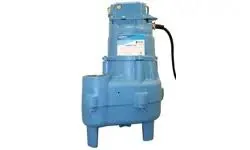English
- Afrikaans
- Albanian
- Amharic
- Arabic
- Armenian
- Azerbaijani
- Basque
- Belarusian
- Bengali
- Bosnian
- Bulgarian
- Catalan
- Cebuano
- Corsican
- Croatian
- Czech
- Danish
- Dutch
- English
- Esperanto
- Estonian
- Finnish
- French
- Frisian
- Galician
- Georgian
- German
- Greek
- Gujarati
- Haitian Creole
- hausa
- hawaiian
- Hebrew
- Hindi
- Miao
- Hungarian
- Icelandic
- igbo
- Indonesian
- irish
- Italian
- Japanese
- Javanese
- Kannada
- kazakh
- Khmer
- Rwandese
- Korean
- Kurdish
- Kyrgyz
- Lao
- Latin
- Latvian
- Lithuanian
- Luxembourgish
- Macedonian
- Malgashi
- Malay
- Malayalam
- Maltese
- Maori
- Marathi
- Mongolian
- Myanmar
- Nepali
- Norwegian
- Norwegian
- Occitan
- Pashto
- Persian
- Polish
- Portuguese
- Punjabi
- Romanian
- Russian
- Samoan
- Scottish Gaelic
- Serbian
- Sesotho
- Shona
- Sindhi
- Sinhala
- Slovak
- Slovenian
- Somali
- Spanish
- Sundanese
- Swahili
- Swedish
- Tagalog
- Tajik
- Tamil
- Tatar
- Telugu
- Thai
- Turkish
- Turkmen
- Ukrainian
- Urdu
- Uighur
- Uzbek
- Vietnamese
- Welsh
- Bantu
- Yiddish
- Yoruba
- Zulu
Telephone: +86 13120555503
Email: frank@cypump.com
Nov . 13, 2024 09:55 Back to list
sump pump for septic tank
The Importance of Sump Pumps for Septic Tanks
Sump pumps are vital components in various wastewater management systems, especially for homes utilizing septic tanks. These pumps play a critical role in ensuring that sewage and wastewater are effectively removed from the septic tank, preventing potential health hazards and environmental issues. Understanding the function, benefits, and maintenance of sump pumps in septic systems is essential for homeowners and property managers alike.
Function of Sump Pumps in Septic Systems
A sump pump is a submersible pump that is installed in the sump pit, a basin located at the lowest point of a property. In septic systems, it helps in managing groundwater that may infiltrate the septic tank, particularly in areas prone to flooding or heavy rainfall. When water levels rise within the tank, the sump pump activates automatically, removing excess water to maintain optimal tank performance.
In addition to dealing with groundwater, sump pumps also assist in managing effluent – the liquid waste that comes from the septic tank. By pumping out treatment-ready effluent to a designated drainage field or leach field, the sump pump ensures that the septic system operates efficiently, minimizing the risk of overflow and resulting backups.
Benefits of Sump Pumps in Septic Systems
1. Preventing Backups and Overflows One of the main advantages of having a sump pump integrated with a septic tank system is the prevention of sewage backups. Overflows can create unpleasant odors, unsanitary conditions, and potentially infect the surrounding soil and water sources.
2. Promoting Efficient Wastewater Treatment Sump pumps help maintain the proper flow of waste through the septic system. When excess water is removed efficiently, the septic tank provides adequate time for solids to settle and undergo anaerobic digestion, leading to better wastewater treatment.
3. Protecting Property In regions prone to heavy rains or flooding, a sump pump acts as a safeguard for the home. By diverting excess groundwater away from the septic system, homeowners can avoid costly repairs associated with water damage and septic system failures.
sump pump for septic tank

4. Extending the Lifespan of Septic Tanks Regular operation of a sump pump reduces the risk of overloading the septic tank. A well-maintained septic system can last for many years, saving homeowners money in costly replacements or repairs.
Maintenance of Sump Pumps
Proper maintenance of sump pumps is critical for their effective operation. Homeowners should regularly inspect the pump for any signs of wear and tear, ensuring that it is free from debris and functioning as intended. Here are some essential maintenance tips
1. Routine Testing Periodically test the sump pump by filling the sump pit with water. The pump should activate and remove the water efficiently. If it fails to operate, it may need repairs or replacement.
2. Cleaning Keep the sump pit clean and free of debris that could clog the pump. Regular cleaning helps ensure that the pump can operate efficiently.
3. Check the Power Source Ensure that the sump pump is connected securely to its power source. Consider using a battery backup system for additional security during power outages.
4. Professional Inspection Schedule regular inspections with a qualified technician. This professional maintenance can catch potential problems before they escalate, ensuring the pump’s longevity and functionality.
Conclusion
The integration of a sump pump in a septic tank system is an essential aspect of modern wastewater management. By preventing backups, promoting efficient wastewater treatment, protecting property, and extending the lifespan of septic systems, sump pumps play a crucial role in ensuring that homes are safe and sanitary. Consequently, understanding the importance of sump pumps, alongside proper maintenance practices, can help homeowners manage their septic systems effectively, safeguarding their health and the environment.
-
ISG Series Vertical Pipeline Pump - Chi Yuan Pumps Co., LTD.|High Efficiency, Energy Saving, Low Noise
NewsJul.30,2025
-
ISG Series Vertical Pipeline Pump- Chi Yuan Pumps|High Efficiency&Low Noise
NewsJul.30,2025
-
ISG Series Vertical Pipeline Pump-Chi Yuan Pumps Co., LTD.|High Efficiency&Energy Conservation
NewsJul.30,2025
-
ISG Series Vertical Pipeline Pump - Chi Yuan Pumps Co., LTD.|Advanced Hydraulic Design&Energy-Efficient Solutions
NewsJul.30,2025
-
ISG Series Vertical Pipeline Pump - Chi Yuan Pumps Co., LTD.
NewsJul.30,2025
-
ISG Series Vertical Pipeline Pump - Chi Yuan Pumps Co., LTD.|energy-efficient fluid handling&industrial durability
NewsJul.30,2025










